Coronavirus: UK interest rates slashed in emergency move
The coronavirus crisis is threatening to all but shut down the global economy
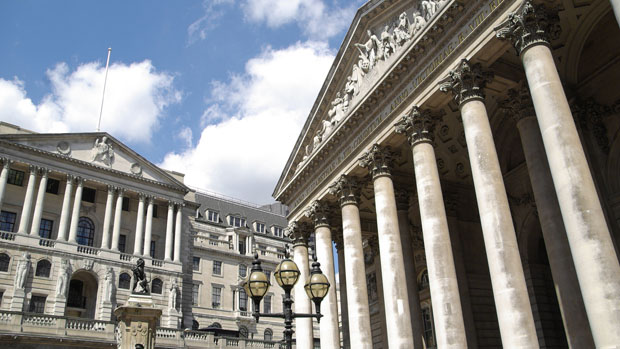
A free daily email with the biggest news stories of the day – and the best features from TheWeek.com
You are now subscribed
Your newsletter sign-up was successful
The Bank of England has cut interest rates, warning the coronavirus pandemic will result in a “sharp and large” shock.
In a bid to support the UK economy in the face of the outbreak, the Bank made its second interest rates cut in a little over a week, bringing them down to 0.1% from 0.25%.
The coronavirus pandemic has “truly moved UK economic policy into uncharted territory with that emergency rate cut,” The Guardian reports.
The Week
Escape your echo chamber. Get the facts behind the news, plus analysis from multiple perspectives.

Sign up for The Week's Free Newsletters
From our morning news briefing to a weekly Good News Newsletter, get the best of The Week delivered directly to your inbox.
From our morning news briefing to a weekly Good News Newsletter, get the best of The Week delivered directly to your inbox.
Meanwhile, Faisal Islam, economics editor of the BBC, says monetary policy “remains a blunt tool to deal with a pandemic and its economic fallout”, but adds that the move creates “some space” for “much more action on tax and spend... to deal with the enormous economic hit from the virus”.
–––––––––––––––––––––––––––––––For a round-up of the most important business stories and tips for the week’s best shares - try The Week magazine. Get your first six issues for £6–––––––––––––––––––––––––––––––
The Bank said the measures announced earlier this week by Chancellor Rishi Sunak were not going to be enough to protect the economy, adding that “a further package of measures was warranted”.
Jeremy Thomson-Cook, chief economist at payments company Equals Group, says that with the interest rate cut, the Bank of England is effectively saying “your move” to the Treasury.
A free daily email with the biggest news stories of the day – and the best features from TheWeek.com
“The base rate is now at the lowest level we think the Bank of England is prepared to go to and with that will come a not so unsubtle hand-off of the stimulus baton to the Treasury,” he says.
Unless money is “forced into the hands of small businesses soon then it will be for nothing; they are the ones laying off staff due to a liquidity shock,” Thomson-Cook adds.
Tom Stevenson, investment director for personal investing at Fidelity International, said: “Britain is now a whisker away from the negative interest rate club.”
The emergency cut is bad news for savers, as High Street banks use the Bank of England base rate as a reference point for savings accounts. The rate cut could, however, benefit homeowners, although it will not affect fixed-rate mortgages that account for roughly half of home borrowing in the UK.
Martin Lewis of MoneySavingExpert.com said after last week’s cuts that it is a good time to remortgage.
He told This Morning: “If you're looking to remortgage, I would say right now this is a very good time. I'd wait a week or two, because those mortgage rates are going to come down.”
The Bank also unveiled another £200bn in bond buying under the quantitative easing programme, as well as extending the term funding scheme. The latter is hoped to encourage lenders to pass on the benefits of interest rate cuts to companies and households.
Andrew Bailey, the new governer of the Bank of England, took over from his predecessor Mark Carney on Monday.
-
 Why is the Trump administration talking about ‘Western civilization’?
Why is the Trump administration talking about ‘Western civilization’?Talking Points Rubio says Europe, US bonded by religion and ancestry
-
 Quentin Deranque: a student’s death energizes the French far right
Quentin Deranque: a student’s death energizes the French far rightIN THE SPOTLIGHT Reactions to the violent killing of an ultraconservative activist offer a glimpse at the culture wars roiling France ahead of next year’s elections
-
 Secured vs. unsecured loans: how do they differ and which is better?
Secured vs. unsecured loans: how do they differ and which is better?the explainer They are distinguished by the level of risk and the inclusion of collateral
-
 The end for central bank independence?
The end for central bank independence?The Explainer Trump’s war on the US Federal Reserve comes at a moment of global weakening in central bank authority
-
 Should Labour break manifesto pledge and raise taxes?
Should Labour break manifesto pledge and raise taxes?Today's Big Question There are ‘powerful’ fiscal arguments for an income tax rise but it could mean ‘game over’ for the government
-
 What are stablecoins, and why is the government so interested in them?
What are stablecoins, and why is the government so interested in them?The Explainer With the government backing calls for the regulation of certain cryptocurrencies, are stablecoins the future?
-
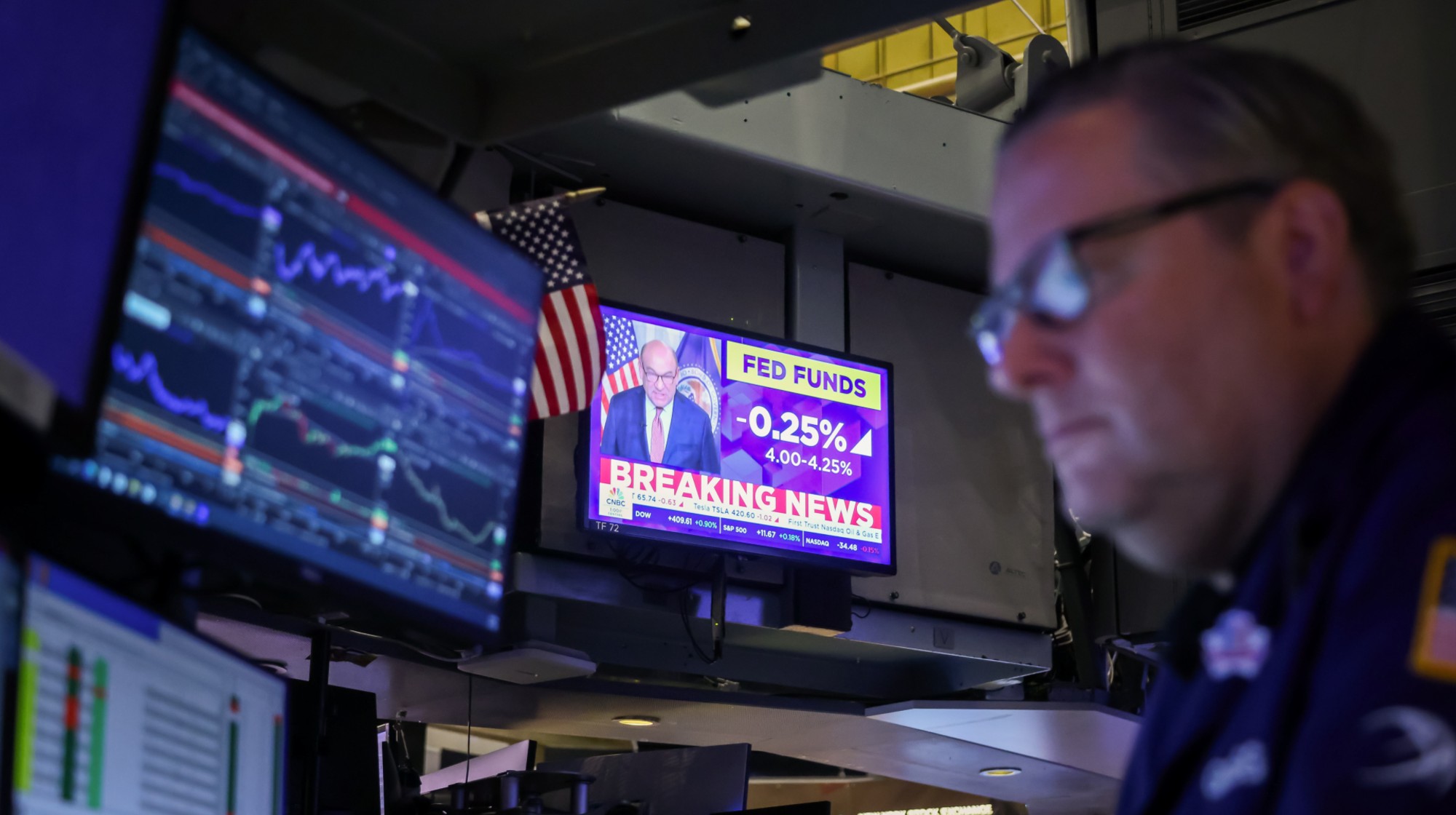 Fed cuts interest rates a quarter point
Fed cuts interest rates a quarter pointSpeed Read ‘The cut suggests a broader shift toward concern about cracks forming in the job market’
-
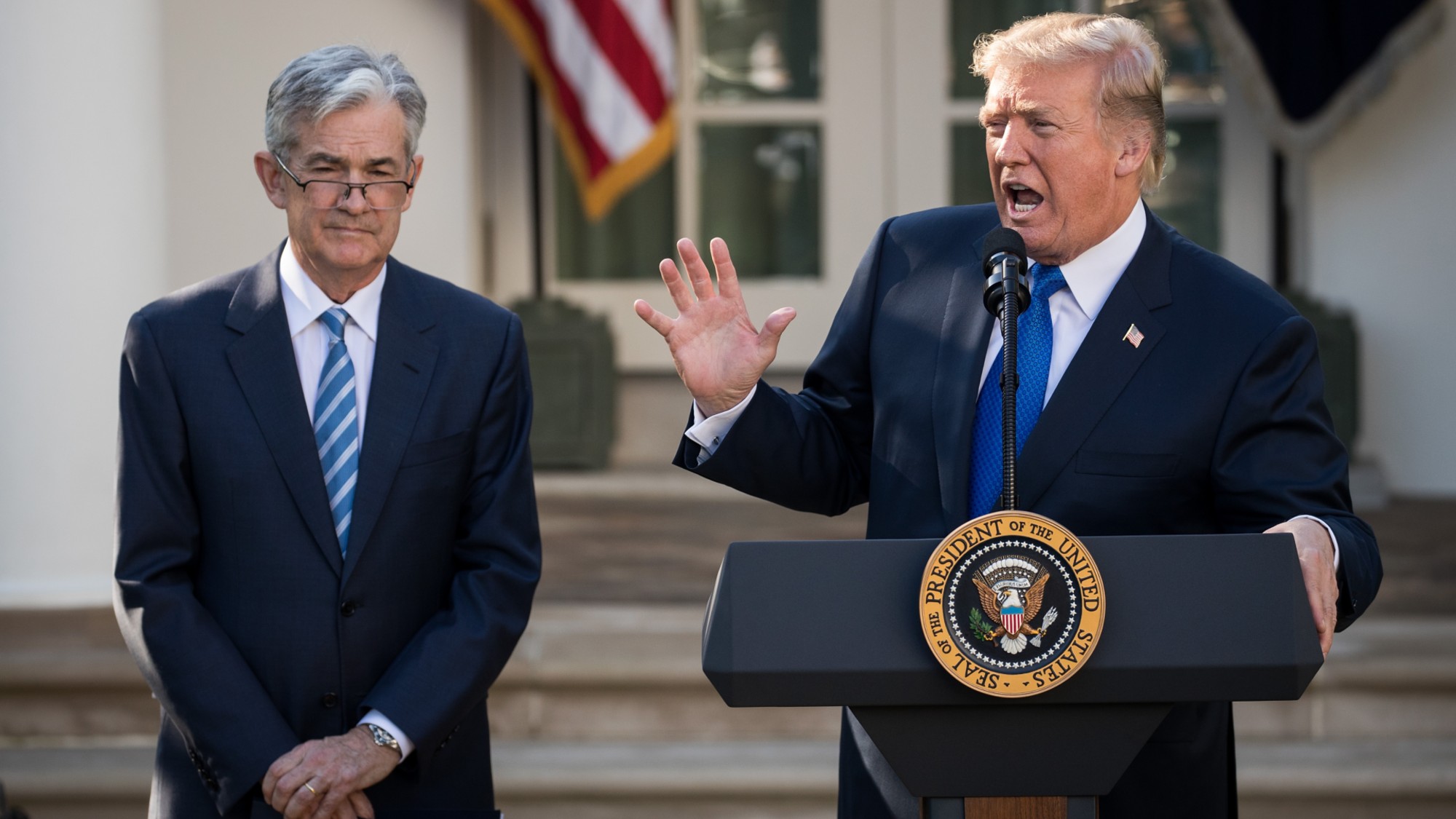 How will Wall Street react to the Trump-Powell showdown?
How will Wall Street react to the Trump-Powell showdown?Today's Big Question 'Market turmoil' seems likely
-
 Will Rachel Reeves have to raise taxes again?
Will Rachel Reeves have to raise taxes again?Today's Big Question Rising gilt yields and higher debt interest sound warning that Chancellor may miss her Budget borrowing targets
-
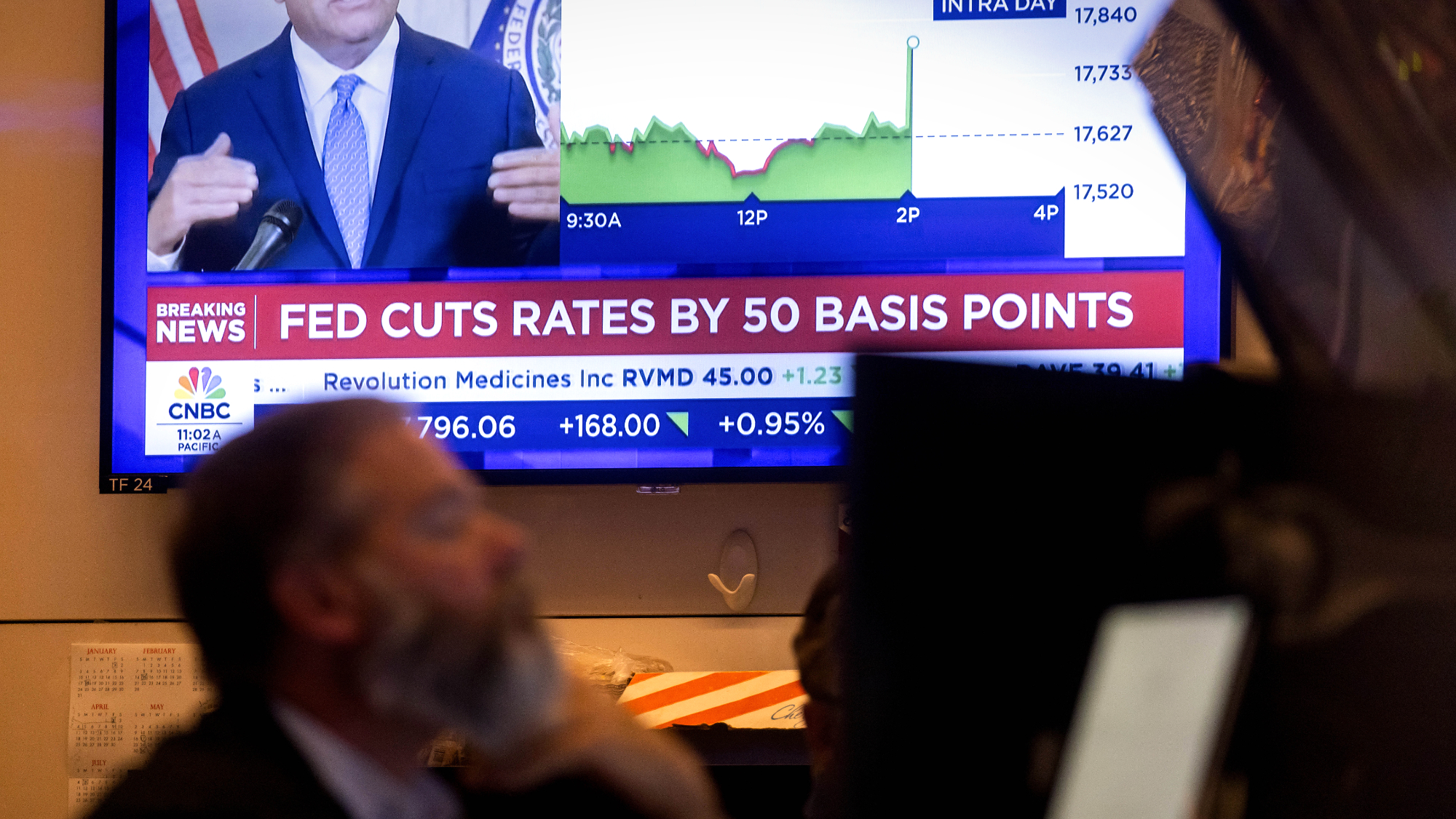 Fed cuts rates half a point, hinting victory on inflation
Fed cuts rates half a point, hinting victory on inflationSpeed Read This is the Fed's first cut in two years
-
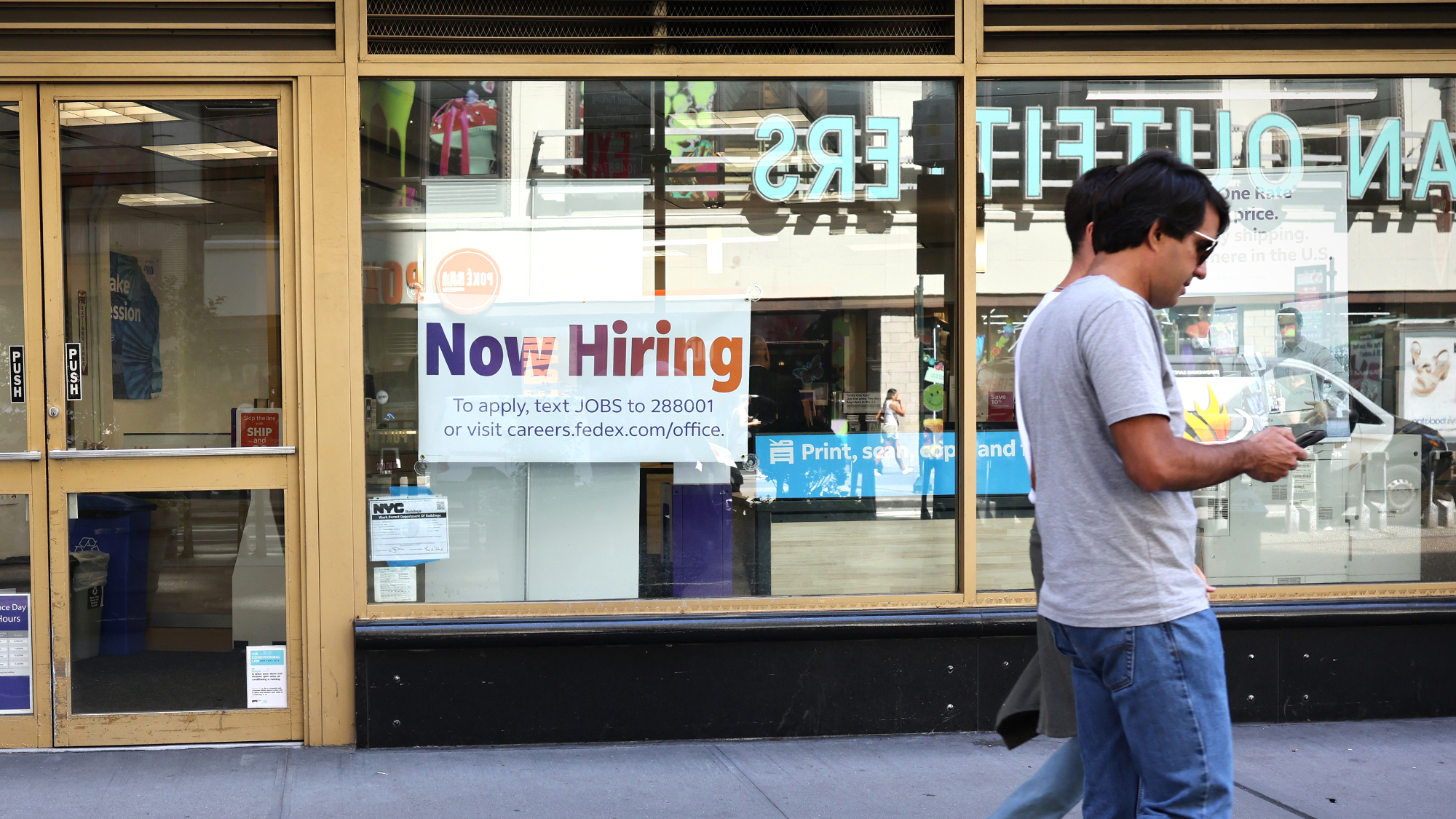 US job growth revised downward
US job growth revised downwardSpeed Read The US economy added 818,000 fewer jobs than first reported